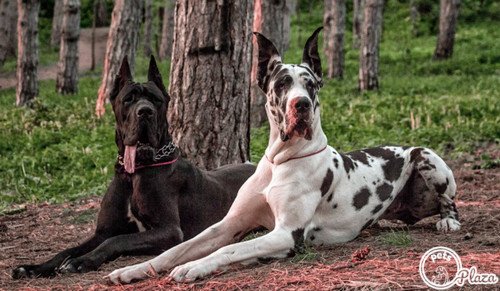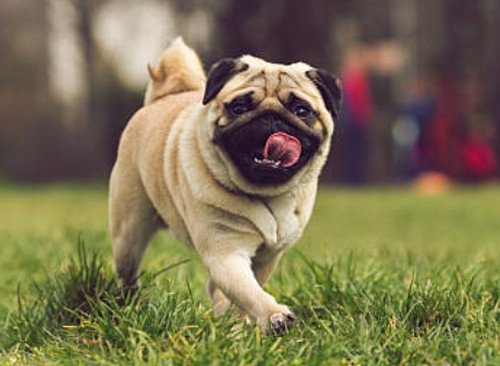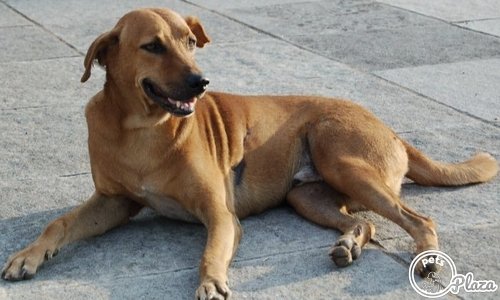Bakharwal (pronounced as the US: Back•er•wall) is an ancient Himalayan dog breed found in the high altitude of Indian states’ Jammu and Kashmir.
What makes this dog breed unique is that it does not eat flesh. Instead, its diet mainly consists of vegetables.
It is characterized by a large head, broad muzzle, hanging ears, a bushy tail, and strong legs. It belongs to the herding dog category but is the rarest type.
Quick information
| Other names | Kashmir Sheepdog, Gujjar Dog, Bakarwal, Gujjar Watchdog, Kashmir Mastiff, Bakarwal |
| Type | Guard Dog |
| Colors | Black and Tan, Tri-color, Piebald |
| Height | 24 to 30 inches (2 – 2.5 Feet) |
| Weight | 60 to 79 pounds (27.2 Kgs – 35.8 Kgs) |
| Life expectancy | 8 to 12 years |
| Personality traits | Loyal, alert, polite, responsive, protective |
| Barking | Moderate |
| Shedding | Moderate |
| Country of Origin | India |
| Shedding | Moderate |
Bakharwal Dog Pictures
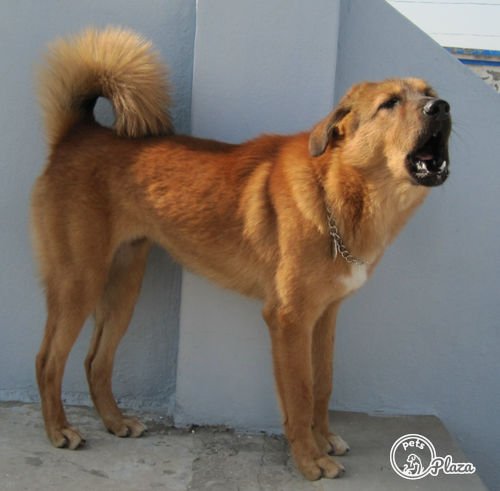
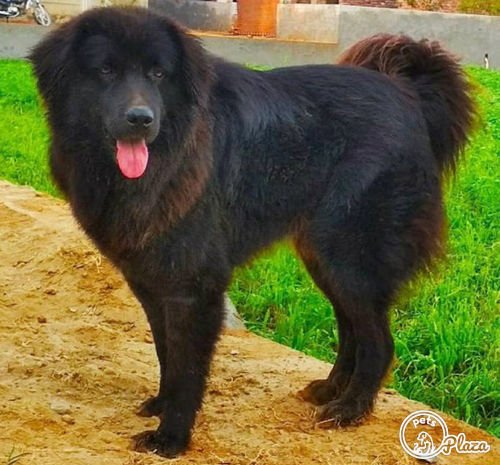
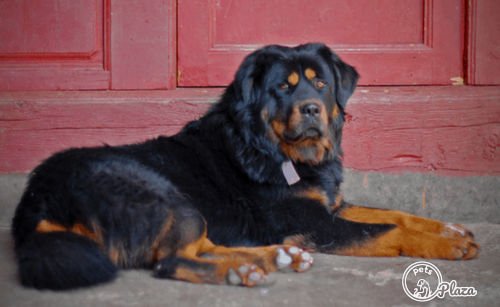
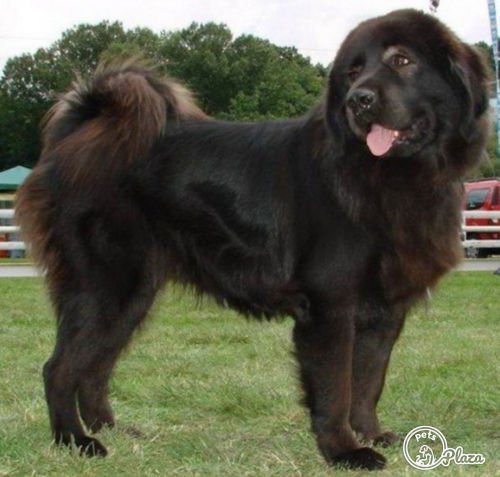
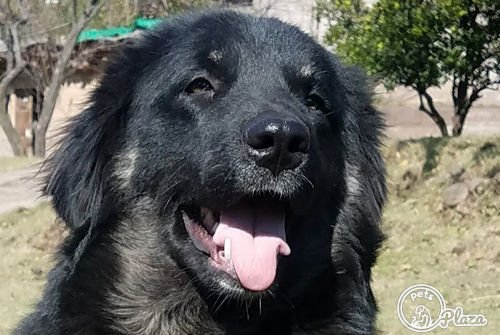
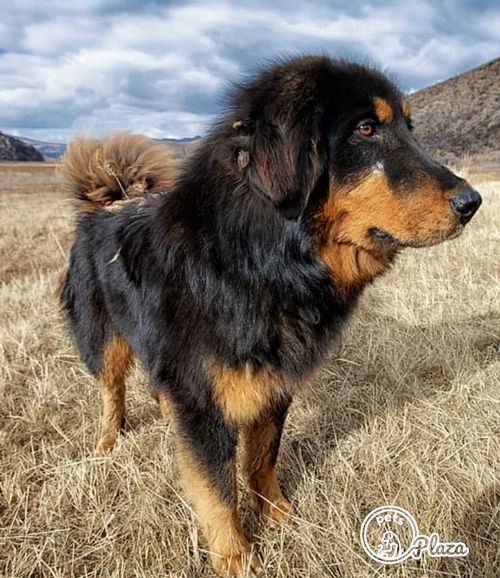
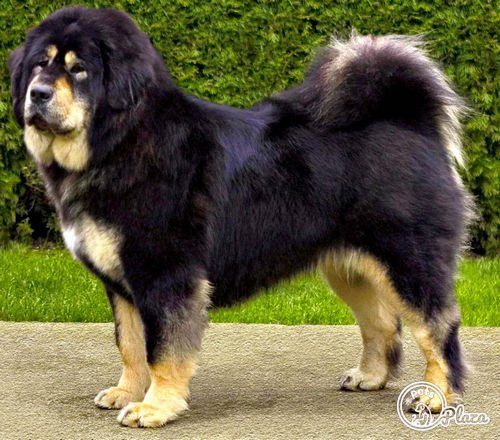
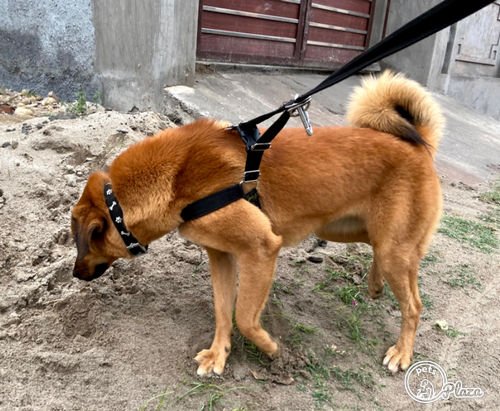
History of Bakharwal
It is believed that Bakharwal dogs were around 300 years ago together with the nomadic tribe; Gujjar. They were used to herd, guard and protect cows and sheep.
Many believed that Bakharwal is related to Tibetan Mastiff and the older molosser breeds like Saigh Sag, Tuvan Sheepdog, and Hyrcanian Mastiff.
Temperament and Behavior
Bakharwal is known for being ferociously protective but naturally loyal and independent. It takes guarding and herding duties seriously.
It is the type of dog breed that won’t be easily intimidated even by dogs of a bigger size. It is innate to them to stand their ground, especially if they feel like their masters are in trouble.
While they are known to be good with kids and their masters, they are not fond of small pets. So if you have other pets at home, socialization with Bakharwal must begin at an early age.
Another thing to remember about Barkharwal’s behaviour is that they are extremely active dog and tends to wander off.
Health and Care
- Bakharwal dogs are not suited in houses with tight spaces such as apartment living because of their strong pastoral instinct.
- They love being outside, making them suited in houses with medium to large yards.
- They are active dogs, so it is a must to make a way to release their energy through running and playing. It is good not only for their physical health but as well as to their mental health.
- Make sure that your yard is properly fenced, as Bakharwal tends to wander off or escape.
Common Health Problems
- Hip dysplasia
- Patellar luxation
- Bloating
- Cryptorchidism
- Obesity
Grooming
The dense double layer coat of Bakharwal makes it susceptible to burrs and foxtails. However, they don’t require much bathing and brushing.
- Brushing can be done once a week, but make sure to detangle the coat.
- Bathing can be done a few times each year.
- Once the coat is heavily dense, it is high time to trim it.
- Keep the nails short.
Training
A significant part of training Bakharwal is obedience. Puppies tend to whimper or white to express their needs. If you start to notice these behaviours, ignore them.
Do not comfort the puppies when whining, as they will interpret your action as praise. They will eventually develop the habit of whining every time they want something from you.
- When training your dog, always use positive reinforcement, such as giving praise, treat, and hug.
- Keep the dog busy to keep the brain working.
- Give ample time and attention to your dog to develop a bond, so your dog would prefer staying indoors with you instead of staying outside.
Q. What is Bakharwal breed price in India?
A. A Bakharwal puppy can cost you somewhere between Rs.2000 to Rs.6000 in India.
Q. What is Bakharwal breed price in USA, UK, and Canada?
A. A Bakharwal dog/puppy can cost around $1000-$1200 (USD, $) in the USA, whereasthe price of Bakharwal in UK and Canada is unknown
Q. What is the average lifespan of a Bakharwal?
A. A Bakharwal has an average life expectancy of 10 to 12 years if they are healthy and properly cared for.
Q. Do Bakharwals need regular exercise?
A. Yes, Bakharwal is an active dog breed that require daily exercise. If you are a person with active lifestyle, they are a good choice for you.
Q. Are Bakharwals good family dogs?
A. Bakharwals are shy dogs, but they are extremely affectionate and loving towards their family and small kids, thus making a good example of a family dog.
Q. What is the average weight of a Bakharwal?
A. A Bakharwal average weight can be around 60-80lbs (27.2 Kgs – 36.2 Kgs).
Q. Are Bakharwals easy to train?
A. Bakharwals are intelligent but stubborn dogs. They need to be trained firmly, however ensure to use positive reinforcements in your approach.
Q. Do Bakharwals shed often?
A. Yes, Bakharwals have long coat and shed moderately, that can be groomed by brushing regularly and taking them to professional groomers.

